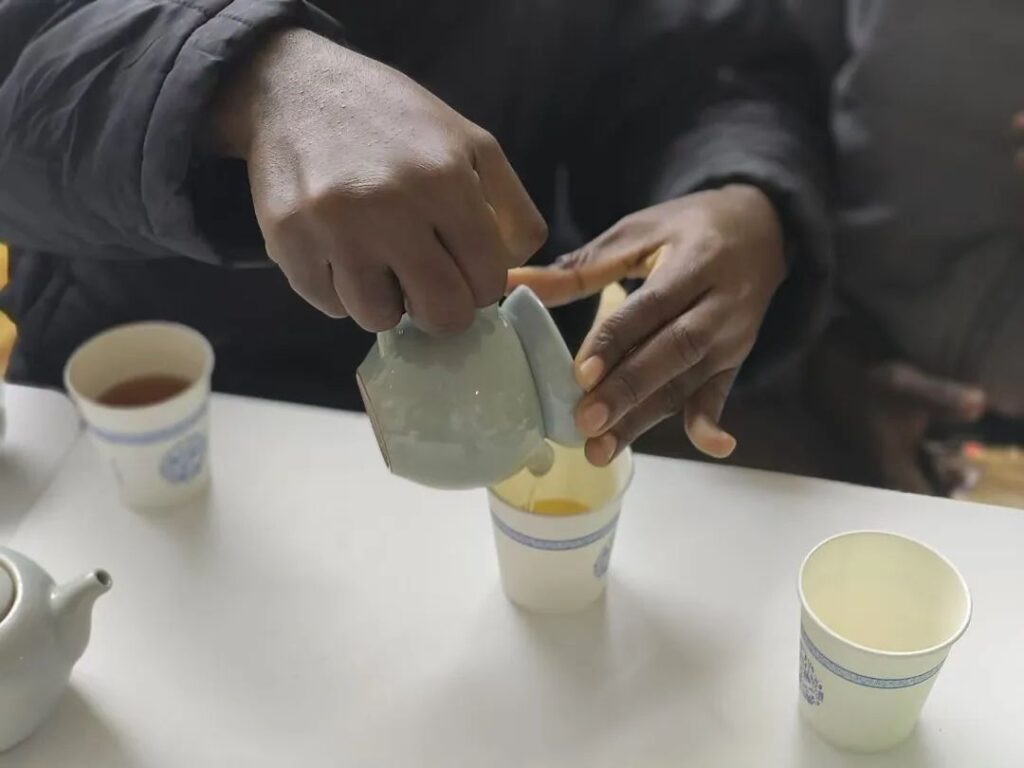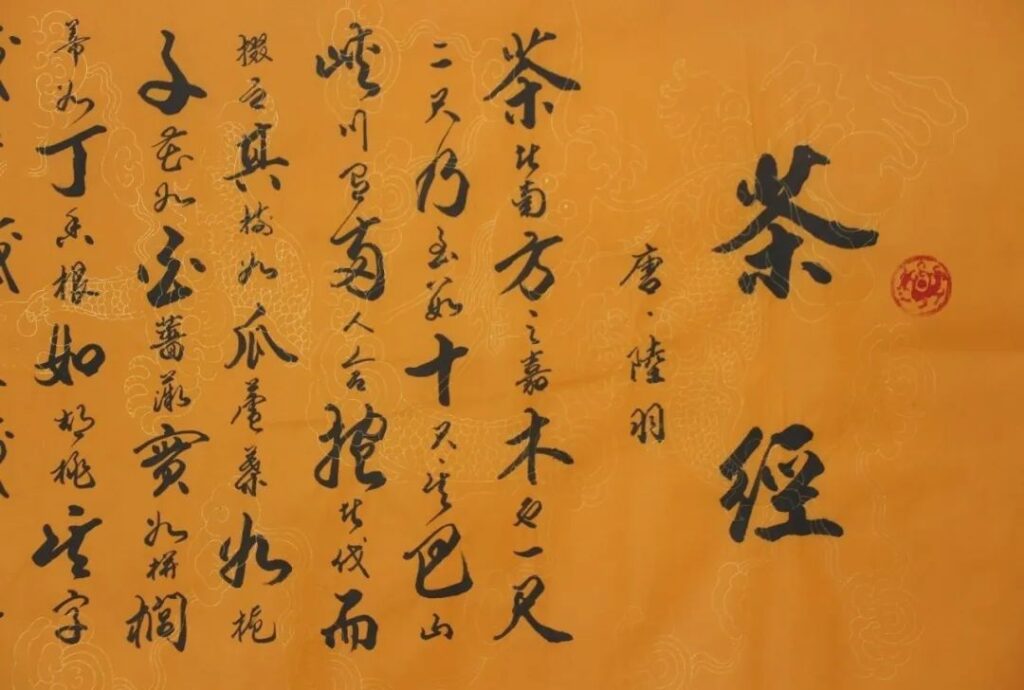Chinese Corner – Tea Culture: China, the birthplace of tea, has a history of discovering and utilizing tea that spans over 4700 years. The Chinese tea culture is a legacy of profound wisdom and tradition, a treasure trove rich in history, philosophy, and art. In this session, we will delve into the allure of tea and appreciate the deep heritage of Chinese culture.
Life is like tea: At the start of the event, members of Septune explained the origins and spread of tea. Initially, the divine farmer Shennong discovered tea leaves while tasting various herbs. Recognized for its medicinal value, tea has evolved over millennia into an enchanting beverage under the meticulous cultivation of the Chinese. It entered the world of Tang Dynasty poets, became the lifeblood of nomadic tribes, was carried by monks in their travels, spreading Buddhism to Japan where it was elevated into a living belief. During the Age of Exploration, tea boarded cargo ships, showcasing the charm of the ancient Eastern empire alongside porcelain and silk.
At the beginning of the event, the members of Septune introduced the origin and dissemination of tea to everyone. Initially, Shennong discovered tea leaves while tasting hundreds of herbs. Due to its medicinal value, tea gained attention from people. However, after thousands of years of evolution, through the meticulous research of the Chinese people, it transformed into a delightful beverage. It entered the world of Tang Dynasty poets, becoming the source of life for nomadic peoples. Monks carried it in their luggage, spreading along with Buddhism to Japan, where it evolved into a way of life. During the Age of Exploration, it boarded cargo ships, showcasing the charm of the ancient Eastern country alongside porcelain and silk to the world.
Tea-tasting in China involves a wide variety of tea types, which can be broadly categorized into six classes based on their color and processing methods: green tea, white tea, yellow tea, oolong tea, black tea, and dark tea.China boasts a rich variety of teas, which can be broadly classified into six categories based on their color and processing methods: green tea, white tea, yellow tea, oolong tea, black tea, and dark tea.
International students, with great concentration, savor the subtle bitter and sweet flavors of various teas, experiencing the blooming aroma on their palates. Numerous students also attempt to craft their own cup of tea, an experience they find magical. After an exchange, Moroccan students shared Moroccan tea with their Chinese counterparts. By adding tea powder, mint, and sugar, and continuously stirring until the optimal flavor is achieved, a pot of Moroccan tea is completed.Tea culture is not only a way of personal cultivation but also an important medium for social and cultural exchange.
In the past, tea connected China with the world through the Silk Road and maritime routes. Today, tea culture links us from different countries through Chinese Corners. From ancient tea banquets to modern tea art performances, from the Ancient Tea Horse Road to tea trading on the Internet, tea culture continues to innovate while being passed down, becoming a bridge connecting the past and the future. In the fast-paced modern life, the concept of slow living advocated by tea culture is increasingly favored by people. Tea’s health benefits are recognized and valued by more and more people.The health benefits of tea are recognized and valued by more and more people.
Tea has been a part of human culture for thousands of years, and its popularity continues to grow due to its numerous health benefits. Tea is rich in antioxidants, which can help protect the body from harmful free radicals and reduce the risk of various diseases. Drinking tea regularly can also improve heart health, boost the immune system, and promote weight loss. Different types of tea, such as green tea, black tea, and herbal tea, each offer unique health benefits.

